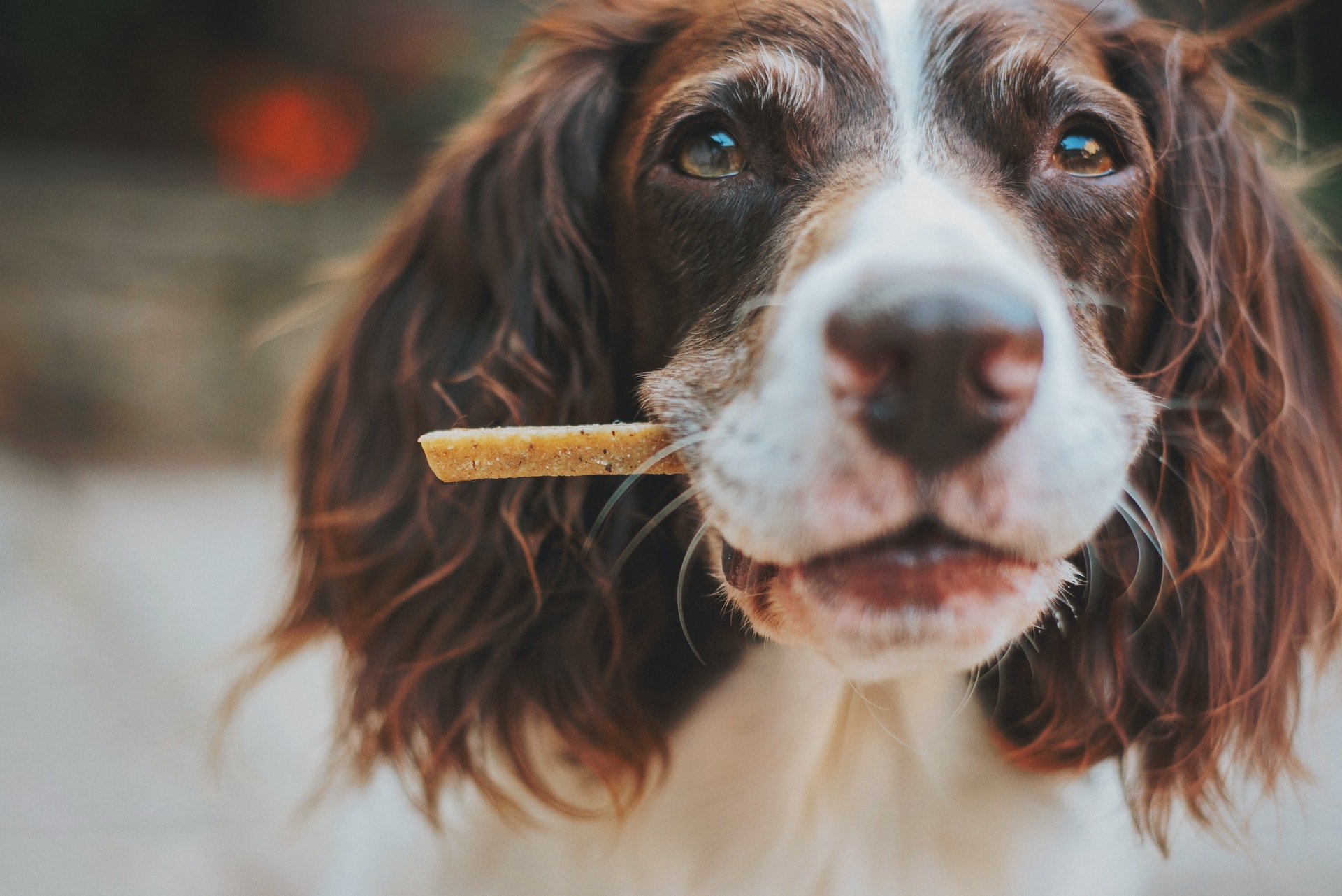Summary:
In addition to giving love and care to help your dog’s mental health and providing your dog with the right amount of daily exercise, making sure your canine buddy has the right diet is of the utmost importance for his or her health and wellbeing. Here are some of the best ways you can improve your dog’s diet.

Purchase the Right Dog Food
Not all dog foods are created equally, so you need to make sure you select the right one. It is better to buy commercial food rather than make your own because the best commercial dog foods pack in everything that your furry friend needs in his or her diet. Commercial pet foods typically contain over thirty essential nutrients that dogs need. It would be much more difficult to get everything needed into homemade dog food.
You also need to ensure the food is suitable for your dog’s stage of development. For instance, there are different foods that are better for puppies, large breeds, overweight, or pregnant dogs. It is a good idea to compare different commercial dog foods online to get an overview of their ingredients and find the right food for your dog. You can even buy the product online for a dog food delivery straight to your front door. By choosing the right food with the right ingredients for your dog and his or her life stage, you can easily improve your dog’s diet.
Add Anti-Inflammatory Whole Foods to Your Dog's Meals
Inflammation is one of the leading causes of premature aging in dogs. It is therefore a good idea to add natural anti-inflammatory whole foods into your dog’s meals. Look for whole foods that are high in antioxidants as well as anti-inflammatories.
Avoid Dog Food with Corn Gluten Meal
Dry pet foods often contain corn gluten meal in order to prevent unstable fats from becoming rancid. But gluten can strain a dog’s liver and kidneys. So, it is always best to avoid dog foods with corn gluten. Besides, gluten can make your dog’s farts much smellier! So, you win as well.
Follow the 10% Treat Rule
It can be easy to end up giving your dog more treats than he or she needs. But if you want to improve your doggy’s diet, make sure no more than 10% of your dog’s diet comes from treats, chews, and table foods.
Count Your Dog's Calories
For us human beings to maintain healthiness, we need to monitor our caloric inputs, and the same goes for dogs. Different breeds need different amounts of calories, so check with your veterinarian to find out what the ideal calorie intake is for your dog. Generally, dogs need between twenty and thirty calories per pound of weight.
Being aware of how many calories your dog is eating does not mean you have to feed your four-legged friend less food, though. For example, a chew that has 100 calories could weigh the same amount as two cups of fresh green beans that have only 60 calories. When you make your dog’s calorie intake a priority, your dog’s diet will be improved and he or she will be healthier and fitter.
Make Sure Your Dog Gets Enough Exercise
Just like with humans, calorie intake is only one side of the coin. Your dog also needs to burn off calories to maintain an optimal weight and be healthy. Make sure you know what the best weight is for your particular dog breed so that you ensure he or she gets the right amount of exercise each day in relation to his or her caloric intake. You should weigh your dog every few months to monitor progress.
